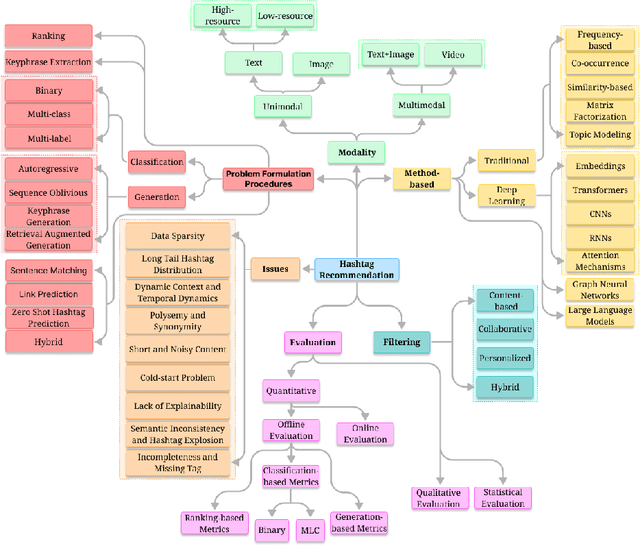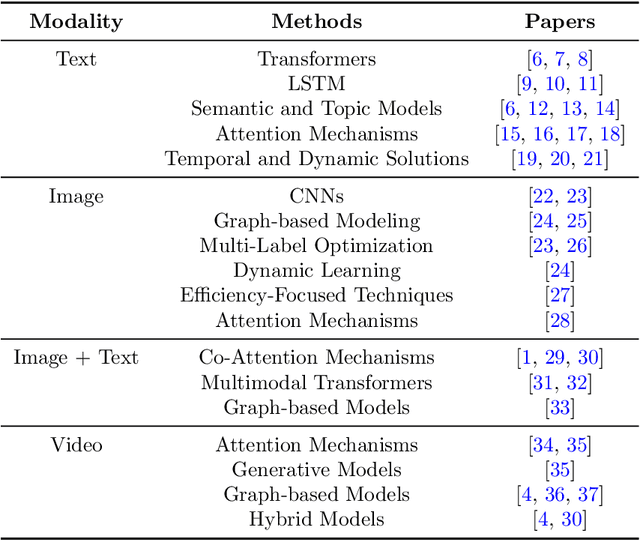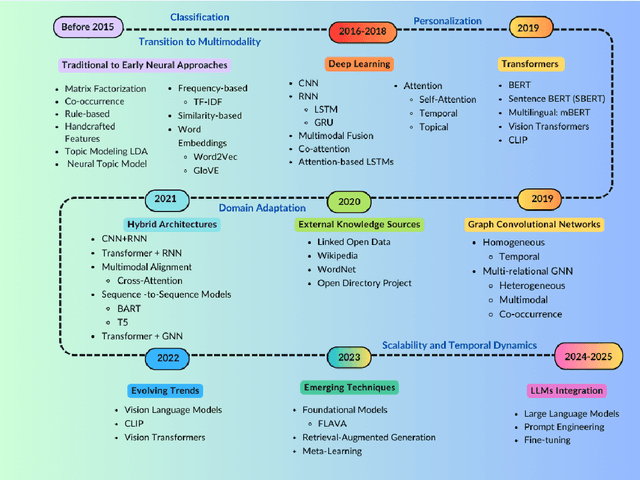A Comprehensive Review on Hashtag Recommendation: From Traditional to Deep Learning and Beyond
Paper and Code
Mar 25, 2025



The exponential growth of user-generated content on social media platforms has precipitated significant challenges in information management, particularly in content organization, retrieval, and discovery. Hashtags, as a fundamental categorization mechanism, play a pivotal role in enhancing content visibility and user engagement. However, the development of accurate and robust hashtag recommendation systems remains a complex and evolving research challenge. Existing surveys in this domain are limited in scope and recency, focusing narrowly on specific platforms, methodologies, or timeframes. To address this gap, this review article conducts a systematic analysis of hashtag recommendation systems, comprehensively examining recent advancements across several dimensions. We investigate unimodal versus multimodal methodologies, diverse problem formulations, filtering strategies, methodological evolution from traditional frequency-based models to advanced deep learning architectures. Furthermore, we critically evaluate performance assessment paradigms, including quantitative metrics, qualitative analyses, and hybrid evaluation frameworks. Our analysis underscores a paradigm shift toward transformer-based deep learning models, which harness contextual and semantic features to achieve superior recommendation accuracy. Key challenges such as data sparsity, cold-start scenarios, polysemy, and model explainability are rigorously discussed, alongside practical applications in tweet classification, sentiment analysis, and content popularity prediction. By synthesizing insights from diverse methodological and platform-specific perspectives, this survey provides a structured taxonomy of current research, identifies unresolved gaps, and proposes future directions for developing adaptive, user-centric recommendation systems.
 Add to Chrome
Add to Chrome Add to Firefox
Add to Firefox Add to Edge
Add to Edge